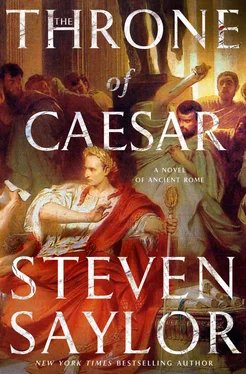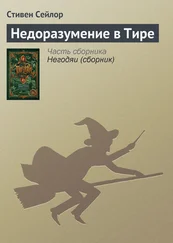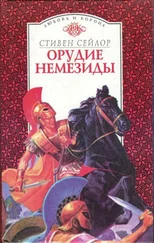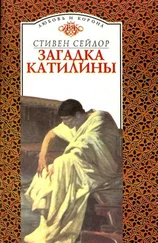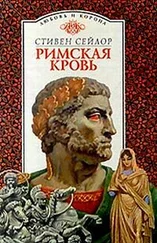Стивен Сейлор - The Throne of Caesar
Здесь есть возможность читать онлайн «Стивен Сейлор - The Throne of Caesar» весь текст электронной книги совершенно бесплатно (целиком полную версию без сокращений). В некоторых случаях можно слушать аудио, скачать через торрент в формате fb2 и присутствует краткое содержание. Год выпуска: 2018, Издательство: St. Martin's Press, Жанр: Исторический детектив, на английском языке. Описание произведения, (предисловие) а так же отзывы посетителей доступны на портале библиотеки ЛибКат.
- Название:The Throne of Caesar
- Автор:
- Издательство:St. Martin's Press
- Жанр:
- Год:2018
- ISBN:нет данных
- Рейтинг книги:5 / 5. Голосов: 1
-
Избранное:Добавить в избранное
- Отзывы:
-
Ваша оценка:
- 100
- 1
- 2
- 3
- 4
- 5
The Throne of Caesar: краткое содержание, описание и аннотация
Предлагаем к чтению аннотацию, описание, краткое содержание или предисловие (зависит от того, что написал сам автор книги «The Throne of Caesar»). Если вы не нашли необходимую информацию о книге — напишите в комментариях, мы постараемся отыскать её.
The Throne of Caesar — читать онлайн бесплатно полную книгу (весь текст) целиком
Ниже представлен текст книги, разбитый по страницам. Система сохранения места последней прочитанной страницы, позволяет с удобством читать онлайн бесплатно книгу «The Throne of Caesar», без необходимости каждый раз заново искать на чём Вы остановились. Поставьте закладку, и сможете в любой момент перейти на страницу, на которой закончили чтение.
Интервал:
Закладка:
“These aren’t actually…” I said.
“They most certainly are,” said Brutus. He was a handsome man with a long face and keen eyes. He wore a simple white tunic embroidered with a Greek key pattern in blue.
“But that would mean these pieces are even older than the Republic,” I said.
“Yes. They date to the reign of King Tarquinius Superbus, when the first Temple of Jupiter was built. The greatest of all Etruscan artisans, a fellow named Vulca, not only designed the temple but also created the statuary. All that remains is what you see here.”
“I should think such precious artifacts would be stored in the temple itself.”
“Yes, one might think that. But, massive as it is, even the Temple of Jupiter has only so much storage space. All those Sibylline books in the basement, you know. And a great many sacred phalluses, I’m told, some of them quite large, and all very ancient, much older than the temple itself. And who knows what else.”
“But how did you acquire these pieces?”
“Well, it wasn’t I who acquired them. It was my ancestors.”
“But how?”
“Who knows? Not I. And if not I, then nobody. Some great-great-grand-somebody-or-other got his hands on them, and here they are. I tell people they’ve been in the family forever, but literally speaking, that’s not true, of course. Even we Bruti haven’t existed forever. Almost, but not quite. The gods are older!” He produced a barking laugh. “What do you say, Mother?” He turned to a tall woman wearing a simple yellow stola who had just entered the room. “Who’s older than us? Some say the Julii, and maybe they are, if it’s true they descend from Venus. Venus must be even older than you, eh, Mother?” He laughed again, then stepped aside, ceding to his mother the focal point of the room where she could see and be seen by her guests .
“Who are these people?” she said brusquely. Despite her son’s jocular tone, Servilia was not a woman to be taken lightly. With her graying hair piled atop her head, her erect bearing, and her chin held high, she was the very picture of a patrician matron. Brutus had joked about her age, but at fifty Servilia was still quite attractive. I could see why Caesar had taken her as a lover when they were both much younger (and much to the consternation of Servilia’s brother, Cato). A lingering sentimental attachment might explain why the Dictator was so indulgent and forgiving of Servilia’s son, despite his opposition to Caesar in the war.
“This man, Mother, is called Gordianus the Finder. And the younger fellow … well, by Hercules, I’m sure the slave told me, but now I’ve forgotten. Not one of your adopted sons, is he?”
“Not quite. Davus is my son-in-law.”
“Ah, yes. That’s it. Gordianus the Finder and his son-in-law, Davus.”
“Why have you abandoned your other visitor to see this fellow?” said Servilia. “You have important business to attend to.”
“How well I know, Mother. But dear old Cicero once told me, should Gordianus the Finder ever come calling, I would do well to see him. ‘The fellow can be quite irritating, but he usually has something interesting to say, and he’s never frivolous.’ Well, from Cicero, that’s quite a compliment.”
Servilia looked me up and down, as if by sight she could determine the accuracy of Cicero’s statement. “Well, then?” she said, sounding impatient. “Say something interesting, Finder. Or prove my son’s beloved Cicero a liar.”
Before I could answer—and to my relief—another figure entered the room. From the way she carried herself I knew she must be the mistress of the house, Porcia, Brutus’s new wife and also his cousin. She was rather plain to look at, but her marriage was said to be a genuine love match: Porcia had been a young widow with a child when Brutus divorced his previous wife to marry her. Certainly Brutus could not have improved his standing with the Dictator by marrying the orphaned daughter of Caesar’s bitterest enemy.
Cato—Porcia’s father, Servilia’s brother, and Brutus’s uncle—was dead, but not forgotten. After Cato’s messy suicide in Africa, Brutus, a prot é g é of both Caesar and Cato, had published a eulogy praising his uncle’s steadfast Republican virtues. Copies proliferated and were posted all over the city. Caesar felt obliged to publish his own objurgation, a sort of anti-eulogy that denounced the late hero of the opposition as a greedy, lecherous drunkard. Despite this war of words over a dead man’s reputation, Caesar had named Brutus urban praetor for the year and had put him in the lists for a consulship a few years hence.
Porcia had inherited more than her plain looks from Cato. Like her father, she was said to be headstrong and demanding—not unlike a younger version of her aunt and now mother-in-law, Servilia. Perhaps that explained her appeal to Brutus. As Spurinna had said, In the end, it all comes back to pleasing our wives and mothers.
Servilia stiffened a bit as Porcia entered the room. Brutus smiled and took her by the hand.
“This visitor, my dear…” he began, and introduced us again, repeating the line from Cicero. “And now we must all look to Gordianus to say something interesting. And not frivolous.”
Three pairs of eyes turned on me. Four, counting Davus.
“You’ll think me presumptuous…” I began, and felt their scrutiny sharpen. “It was my son Meto, I think … yes, most definitely it was Meto…”
Servilia and Porcia both looked to Brutus, who explained, “Adopted. Freedman. On Caesar’s military staff. Helps with letters and memoirs and such.”
“Yes, I said to Meto, ‘Now that I have need of such a thing, whom might I ask for advice? Some New Man, perhaps—’”
“Like Spurinna,” said Davus, catching on and trying to be helpful.
“Yes, exactly, some New Man, like Spurinna? And Meto said, ‘By Hercules, Papa, certainly not! Don’t go to the newest member for advice, go to the oldest—oldest by family, at least—and that would be Marcus Junius Brutus. Ask him where to go. Loving Caesar as he does, Brutus will surely want the last of the Dictator’s New Men to look his best on the Ides. ”
All color abruptly drained from Brutus’s face. Porcia, too, seemed to blanch, but Servilia merely looked vexed. “What on earth is this fellow talking about? Cicero was half right. Irritating, indeed!”
“I think, Mother…” Brutus began, then swallowed, looking a bit queasy. He dropped Porcia’s hand so that he could wipe a bead of sweat from his brow. “I think … well, I don’t know what to think.” He stared at me. “Are you saying…?”
“I am to become a senator. On the Ides.” It still felt very strange to say those words aloud, especially to such a man, in such a house.
Porcia, the one I least expected to speak first, stamped her foot and clenched her fists. “Oh, that is the limit! Husband, why have you even allowed this … this … person … into our home?”
Brutus spoke through gritted teeth that gave the false appearance of a smile. “I told you, my love. Cicero vouches for the fellow.”
“And who is Cicero but another New Man? A man with no ancestors. A nobody!”
“Well, he’s hardly that, my dear.” Brutus looked pained.
“We all have ancestors,” I said quietly. “Even Cicero. Even me. Else how did I get here?”
Brutus cleared his throat. “But you said something about … asking my advice?”
“Yes. I must purchase a new toga. A senator’s toga, to wear on the Ides. As you can see, the venerable old toga I’m wearing today is so ancient and threadbare, I doubt the man who sold it to me is still in business. So I have no idea where I should go. You must know the best of the best.”
Читать дальшеИнтервал:
Закладка:
Похожие книги на «The Throne of Caesar»
Представляем Вашему вниманию похожие книги на «The Throne of Caesar» списком для выбора. Мы отобрали схожую по названию и смыслу литературу в надежде предоставить читателям больше вариантов отыскать новые, интересные, ещё непрочитанные произведения.
Обсуждение, отзывы о книге «The Throne of Caesar» и просто собственные мнения читателей. Оставьте ваши комментарии, напишите, что Вы думаете о произведении, его смысле или главных героях. Укажите что конкретно понравилось, а что нет, и почему Вы так считаете.
